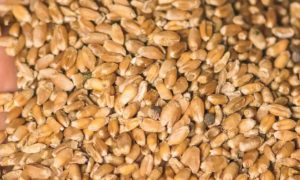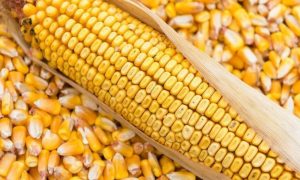Final tax regime: Exporters concerned at exclusion of rice, maize

Pakistan’s rice exports have surged by 78% in value and 65% in volume, reaching 5.9 million tons worth $3.88 billion in the current fiscal year. Maize and sesame exports have also grown, collectively surpassing $800 million. However, the Rice Exporters Association of Pakistan (REAP) has expressed concerns over the shift from the Final Tax Regime to a Hybrid Tax Regime, which may lead to a 60% tax on commodity income, discouraging exports and impacting farmers. REAP demands a reversal of the tax regime and fast-track refund of sales tax claims.
“Rice Exports have registered an export of 5.9 million tons worth US$3.88 billion during the current fiscal year, showing a mammoth growth of 78% by value & 65% by volume as opposed to last year.
Similarly, exports of sesame & maize have collectively surpassed US$800 million in the current fiscal year. Maize Exports have grown by 200% while Sesame Exports are 150% higher in volume as opposed to last year,” said the Acting Chairman of Rice Exporters Association of Pakistan (REAP) Haseeb Ali Khan.
Haseeb was speaking at a meeting with Federal Minister for Finance & Revenue Senator Muhammad Aurangzeb convened on the request of the rice exporters, who are also involved in the export of sesame and maize. Member-Custom Policy FBR and Member-IR Policy and REAP members, including Ch Samee Ullah Naeem, Faisal Garib, Shahid Tawawalla, Adnan Shaikh, Rana Faisal Shabbir also attended.
Haseeb emphasized that these sectors are growing under the private sector without government subsidy (no subsidy on electricity, fuel) and support.
He pointed out grave concern over the recent shift from the Final Tax Regime (FTR 1%) to a Hybrid Tax Regime (1% Minimum Tax & 1% Advance Tax). This shall act detrimentally for exports as exporters are discouraged from exporting any commodity anymore. Rice, Maize & Sesame are considered a commodity, where operating margins are ‘Razor Thin’ ranging 2%-3%. The same may be checked from international commodity traders as well as local traders’ balance sheets. With such an enhanced tax regime & Super Tax Regime, the tax on commodity income is touching 60%, he observed.
He said that the FBR audits may open avenues of corruption/harassment/kickbacks. We cannot let our members and exporters at the mercy of FBR. Such policy shall cause an uneven level playing field for exporters and will cost out serious players from trade, Haseeb added.
He claimed rice, maize, and sesame exporters were experiencing distress over the situation and were just fulfilling past commitments and were not ready to seal future orders due to apprehension of tax audits & recovery notices beyond profits. This discouragement will have a cyclical effect and will impact farmers who is due to harvest bumper Rice crop (11 million tons plus) and sesame crop (350,000 Tons), the REAP Acting Chairman said.
Haseeb said high markup, electricity cost and added tax regime of 2% along with audits are due to make exports unsustainable and it may drop to US$2.5 billion in the coming fiscal year. With the calculation of Sectoral 3% average profits, our sector will have Rs12.5 billion additional tax paid that has to be refunded, in turn hurting liquidity of exporters that are arranged through an extremely high rate of financing. FBR has rarely issued Income Tax Refunds / Withholding tax refunds to Rice Exporters in the past. Such high taxes would make us uncompetitive in the international market, which is driven by cutthroat competition and subsidies at competitive countries.
He also demanded sales tax refund claims of rice exporters on fast track basis and process pending refund claims urgently, as rice industry is not in a position to bear additional financial burden on the already struggling industry, potentially hampering their competitiveness in global markets.
Source Link : https://www.brecorder.com/news/40312536
















